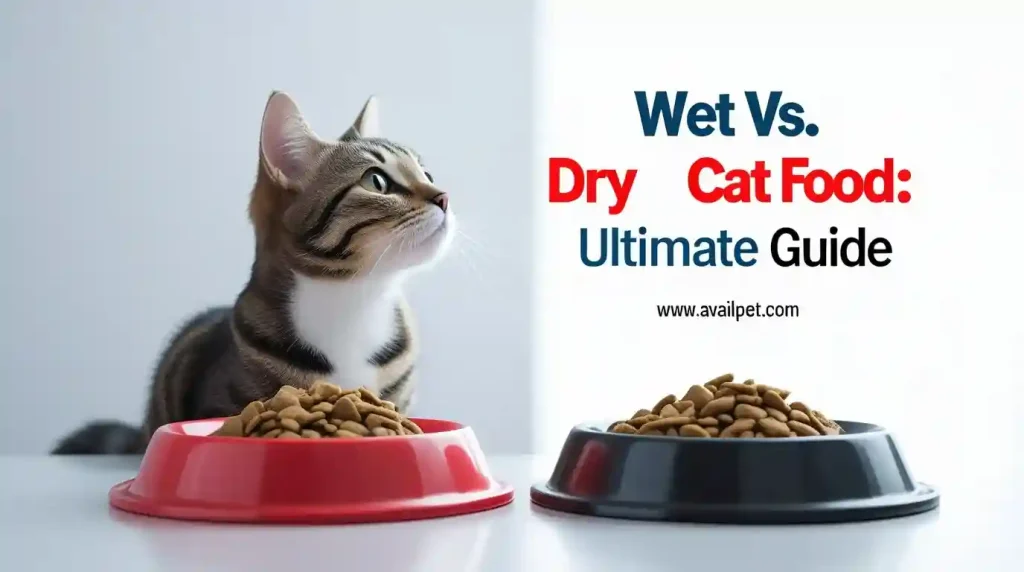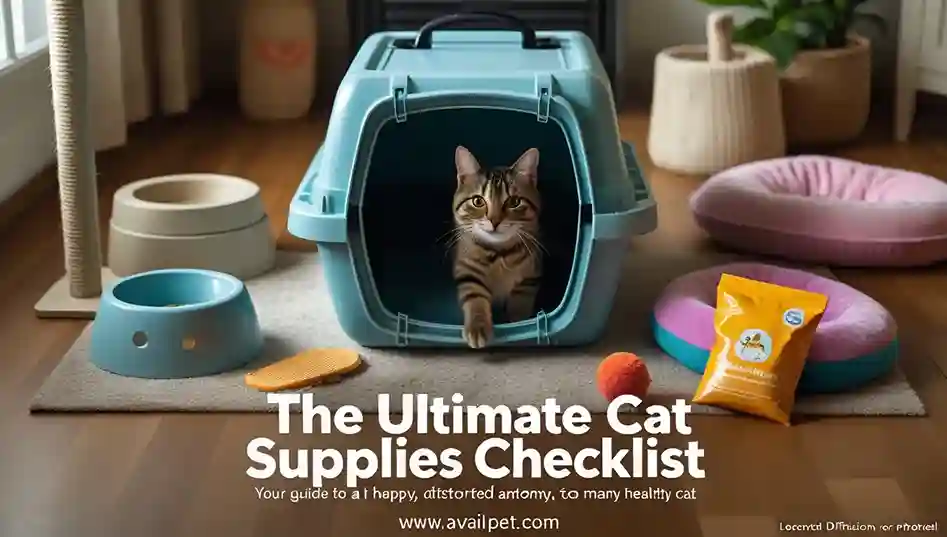🔑 Key Takeaways: Kitten Deworming
- Common Worms: Roundworms, Tapeworms, Hookworms.
- Key Symptoms: Pot-belly, vomiting, diarrhea, visible worms in stool, poor growth.
- Standard Schedule: Start at 2, 4, 6, & 8 weeks old, then monthly until 6 months.
- Vet-Centric: Always use vet-recommended dewormers; avoid over-the-counter without consultation.
Discovering wriggling worms in your new kitten’s litter box or noticing their once-playful energy fade can be a moment of panic for any pet owner. But here’s a reassuring fact: intestinal worms are an extremely common part of kittenhood, and kitten deworming is a standard, simple, and highly effective process to ensure your furry friend grows up healthy and strong.
The key is knowing what to look for, when to act, and how to do it safely. This comprehensive guide, developed with veterinary expertise, will walk you through everything you need to know—from identifying the subtle symptoms and following a proven deworming schedule to understanding the different treatment options. Our goal at AvailPet is to turn your worry into confident action, empowering you with the knowledge to protect your kitten.
Why Deworming is a Non-Negotiable Part of Kitten Care
Many new kitten owners are surprised to learn that most kittens are born with roundworms or get them from their mother’s milk. This makes deworming not just a treatment for a visible problem, but a critical preventative health measure. Ignoring it can have serious consequences for your kitten’s health and even your own.
Intestinal worms are parasites that steal vital nutrients from your growing kitten. This can lead to:
- Stunted Growth and Malnutrition: A worm-infested kitten cannot absorb the calories and nutrients it needs to develop properly, no matter how much it eats.
- A Weakened Immune System: A malnourished kitten is far more vulnerable to other common illnesses.
- Potentially Life-Threatening Blockages: In severe infestations, a mass of worms can cause a dangerous intestinal blockage.
- Zoonotic Risk: Some worms, like roundworms and hookworms, can be transmitted to humans, especially children, posing a health risk to your entire family.
The good news is that deworming is a simple, safe, and highly effective solution to these risks. By following a proactive schedule, you’re not just reacting to a problem—you’re actively building the foundation for your kitten’s long-term health and vitality.
Common Types of Worms in Kittens & Their Symptoms
Recognizing the signs of a worm infestation is the first step toward getting your kitten the help they need. While some symptoms are general, the specific type of worm can sometimes present unique clues. Here’s a breakdown of the most common intestinal parasites in kittens.
Roundworms: The Most Common Culprit
What They Look Like: Spaghetti-like, white or light brown worms that can be several inches long. You may see them in your kitten’s vomit or stool.
Key Symptoms:
- Pot-bellied appearance: A classic sign of a heavy roundworm burden.
- Dull, rough coat
- Vomiting or diarrhea: which may contain visible worms.
- Poor growth: despite a good appetite.
Tapeworms: The Flea Connection
What They Look Like: Small, off-white segments that resemble grains of rice or sesame seeds. These segments are often seen wiggling around the kitten’s anus, in the stool, or where they sleep.
Key Symptoms:
- Scooting or dragging their bottom along the floor.
- Visible rice-like segments in the fur or on bedding.
- Increased appetite but no weight gain (or even weight loss).
Hookworms: The Hidden Bloodsuckers
What They Look Like: Very small, thin worms that are difficult to see with the naked eye. They attach to the intestinal wall and feed on blood.
Key Symptoms:
- Pale gums (anemia) due to blood loss.
- Weakness and lethargy.
- Dark, tarry stool (containing digested blood).
- Skin irritation, especially on the paws, if larvae penetrate the skin.
If your kitten is showing any combination of these symptoms—especially a pot-belly, lethargy, or visible worms—it’s time to consult your veterinarian for a definitive diagnosis and treatment plan.
The Vet-Recommended Kitten Deworming Schedule
Consistency is key when it comes to effectively eliminating worms in kittens. Because worms have specific life cycles and kittens can be repeatedly exposed, a single treatment is not enough. The following schedule is the standard protocol recommended by veterinary authorities like the American Animal Hospital Association (AAHA) to ensure your kitten is fully protected during their most vulnerable months.
Here is a clear, easy-to-follow timeline:
- 2, 4, 6, and 8 Weeks Old: Deworming every two weeks is crucial during this rapid growth phase to tackle worms passed from the mother and those picked up from the environment.
- 4 Months to 6 Months Old: After the initial series, switch to monthly deworming to guard against reinfection as your kitten becomes more active and exploratory.
- 6 Months and Beyond (Adult Cats): The frequency for adult cats should be determined by your veterinarian based on lifestyle (indoor vs. outdoor) and risk factors, typically ranging from every 3 to 12 months.
It is vital to understand that this is a general guideline. Your veterinarian is the best resource and will create a deworming schedule tailored to your kitten’s specific health, the common parasites in your local area, and their individual risk assessment. Always follow their professional advice precisely.
Kitten Deworming Treatment Options: Prescription vs. OTC
Once your kitten has been diagnosed, the next step is choosing the right treatment. Not all dewormers are created equal, and the safest, most effective path involves working directly with your veterinarian.
Veterinary Prescription Dewormers: The Gold Standard
This is our strongest recommendation. Prescription dewormers, such as Drontal® or Profender®, are often broad-spectrum, meaning they are formulated to target multiple types of worms simultaneously (e.g., both roundworms and tapeworms).
Why they are the best choice:
- Targeted & Effective: Your vet will prescribe a dewormer specific to the type of worm your kitten has.
- Guaranteed Safety: The dosage is calculated precisely for your kitten’s weight and age, minimizing any risk.
- Proven Efficacy: Prescription medications undergo rigorous testing to ensure they work as intended.
Over-the-Counter (OTC) Dewormers: Use With Caution
While available at pet stores and online, over-the-counter dewormers require a cautious approach.
How to Choose a Safe OTC Product: Look for active ingredients like Pyrantel Pamoate, which is effective against roundworms and hookworms and is generally considered safe for kittens. For many owners, a pre-measured Elanco Tapeworm Dewormer for Cats can be an easier and more accurate way to administer the correct dose.
E-E-A-T Warning: It is absolutely critical to consult your veterinarian before administering any over-the-counter medication. Incorrect dosage or using the wrong type of dewormer can be ineffective at best and harmful at worst. Your vet can confirm the product is appropriate and provide the correct, weight-based dose.
The goal is a healthy, worm-free kitten, and using a vet-recommended product is the most reliable way to achieve that outcome.
What to Expect After Deworming Your Kitten
After you’ve administered a dewormer, it’s normal to have questions and concerns about what happens next. Understanding the process will help you monitor your kitten effectively and know when to seek further help.
It is common and actually a good sign to see dead worms in your kitten’s stool for a day or two after treatment. This means the dewormer is working effectively to eliminate the parasites from their system. You may see whole roundworms or tapeworm segments.
While most kittens handle deworming well, some may experience mild side effects as their body reacts to the medication and the dying worms. These can include:
- Lethargy or increased sleepiness.
- Mild vomiting or diarrhea.
These symptoms should be temporary and resolve within 24 hours.
🚨 When to Contact Your Veterinator
While mild side effects are normal, you should contact your vet immediately if your kitten exhibits:
- Severe, persistent vomiting or diarrhea.
- Loss of appetite for more than a day.
- Extreme lethargy or weakness.
- Signs of an allergic reaction, such as swelling or difficulty breathing.
Remember, the benefits of eliminating a dangerous worm infestation far outweigh the risk of these temporary, and typically mild, side effects. Proper deworming is a cornerstone of ensuring your kitten’s long-term health and growth.
Kitten Deworming FAQs
Can I get worms from my kitten?
Yes, some worms, like roundworms and hookworms, are zoonotic, meaning they can be transmitted from animals to humans. The risk is generally low, but it’s higher for children. Good hygiene is crucial: always wash your hands after handling your kitten or cleaning the litter box, and ensure you regularly deworm your pet.
How do I clean my house if my kitten has worms?
A thorough cleaning is essential to prevent reinfection. Focus on disinfecting areas your kitten frequents. Wash all bedding in hot water, and use a steam cleaner on carpets and upholstery, as the heat can kill worm eggs. For hard surfaces, a veterinary-grade disinfectant is most effective. Be sure to clean the litter box daily.
Why does my kitten still have worms after deworming?
This is common and usually doesn’t mean the treatment failed. Dewormers typically only kill adult worms, not the immature larvae or eggs. This is why the repeated deworming schedule is so critical—it catches the next generation of worms as they mature but before they can lay more eggs. A heavy initial infestation may also require multiple rounds to fully clear.
What is the best dewormer for kittens?
There is no single “best” dewormer for all situations. The most effective product depends on the type of worm your kitten has. A broad-spectrum prescription dewormer from your veterinarian is always the most reliable and safe option, as it is tailored to your kitten’s specific needs. Avoid using over-the-counter products without veterinary guidance.
Conclusion: A Simple Step for a Healthy Future
Kitten deworming is a fundamental and non-negotiable part of responsible pet ownership. While the thought of parasites can be unsettling, the process itself is straightforward, highly effective, and the single best way to protect your kitten from the dangers of malnutrition, stunted growth, and preventable disease.
By following a vet-approved deworming schedule, staying vigilant for symptoms like a pot-belly or lethargy, and always prioritizing safe, professional treatment options, you are giving your feline friend the healthiest possible start in life.
This proactive care is one of the first and most important steps in your journey together. For a complete roadmap to caring for your new companion, from their first day home to their adult years, explore our comprehensive guide: Bringing Home a New Kitten: The Ultimate Checklist Guide.
Sources






